Here’s the officially reported coronavirus death toll through May 18. The raw data from Johns Hopkins is here.
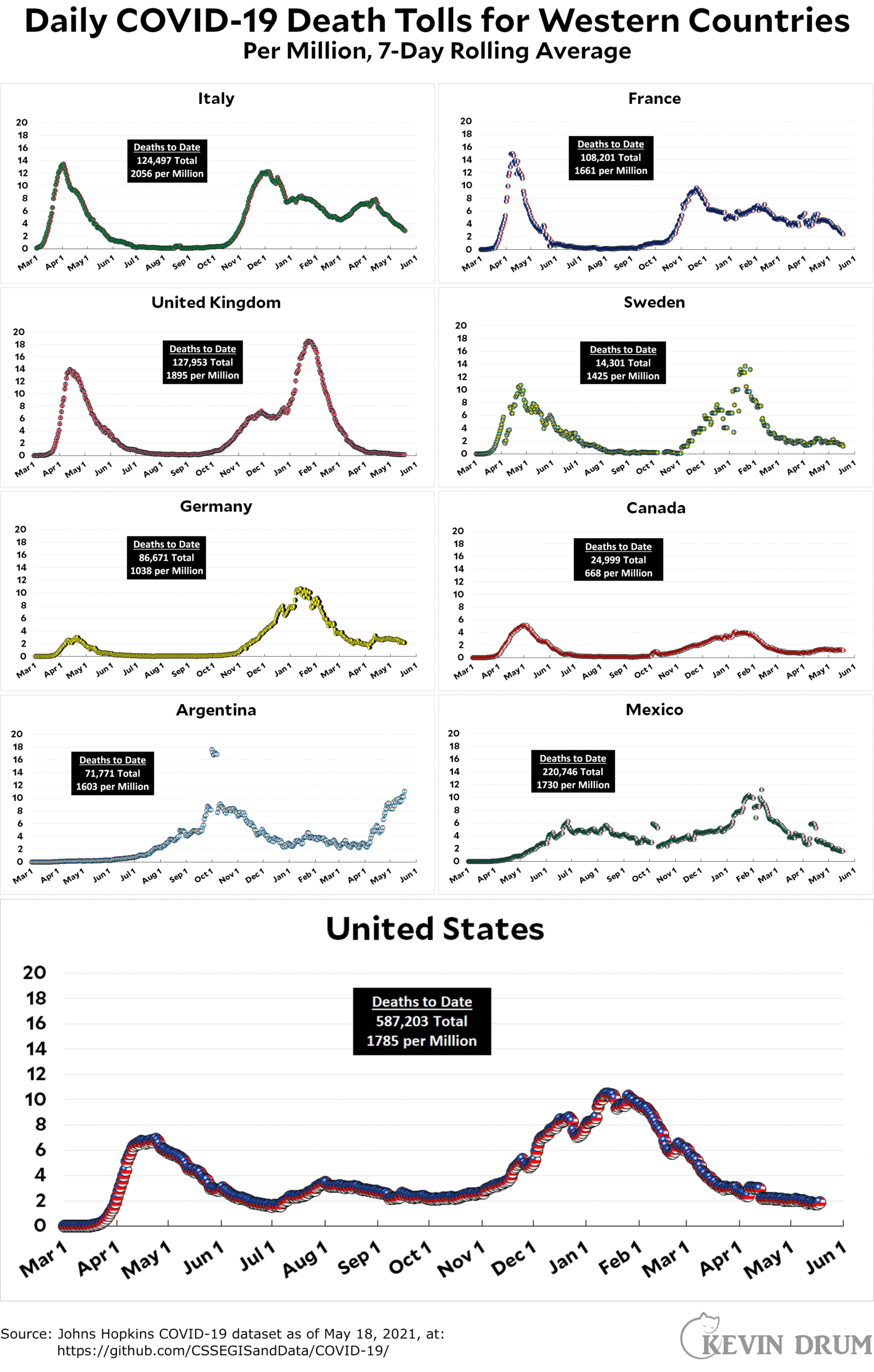
Cats, charts, and politics

Here’s the officially reported coronavirus death toll through May 18. The raw data from Johns Hopkins is here.

It's time for a poll! How much do you think the world has been permanently changed by the pandemic? All of the items below are things that many people think will remain a permanent part of the landscape even after COVID-19 has ebbed into a nuisance rather than a crisis. How many do you agree about?
You can think of this any way you want, but FWIW, I would choose only items that I think are going to significantly change from their current trend. Working from home, for example, has been increasing slowly but steadily for years, so I would check that one only if I think it's going to settle in at several percentage points above its 2019 level and stay there in 2022 and beyond.
I see that UFOs are having a moment again. Here's why I continue to dismiss them even though I know nothing about the evidence and don't want to know.
Air Force pilots claim to see UFOs constantly. I'd actually be more likely to believe something was going on if they saw them less frequently. Is it really plausible that these things have been practically blanketing the Earth for decades but still remain unexplained?
Are they alien spacecraft? If they are, then Earth must be the crossroads of the galaxy. What's more, these highly advanced aliens (interstellar travel, cloaking, etc.) are able to keep their existence 100% secret from our best efforts to find them except for the fact that they continually make their spacecraft visible to pilots who are within a few miles of the ground. This makes no sense.
Are UFOs super advanced objects made by China or Russia? Please. I'd buy the alien hypothesis before that. At least then you could explain how these things violate the laws of physics so easily. There are no nations on earth more thoroughly spied on than China and Russia, and it's obvious they have no technology anywhere close to that displayed by UFOs.
That's about it. Lots of blurry sightings—always blurry!—but absolutely no other effects. Sure.
Here's the topline result from a newly released report by the USC-Annenberg Inclusion Initiative:
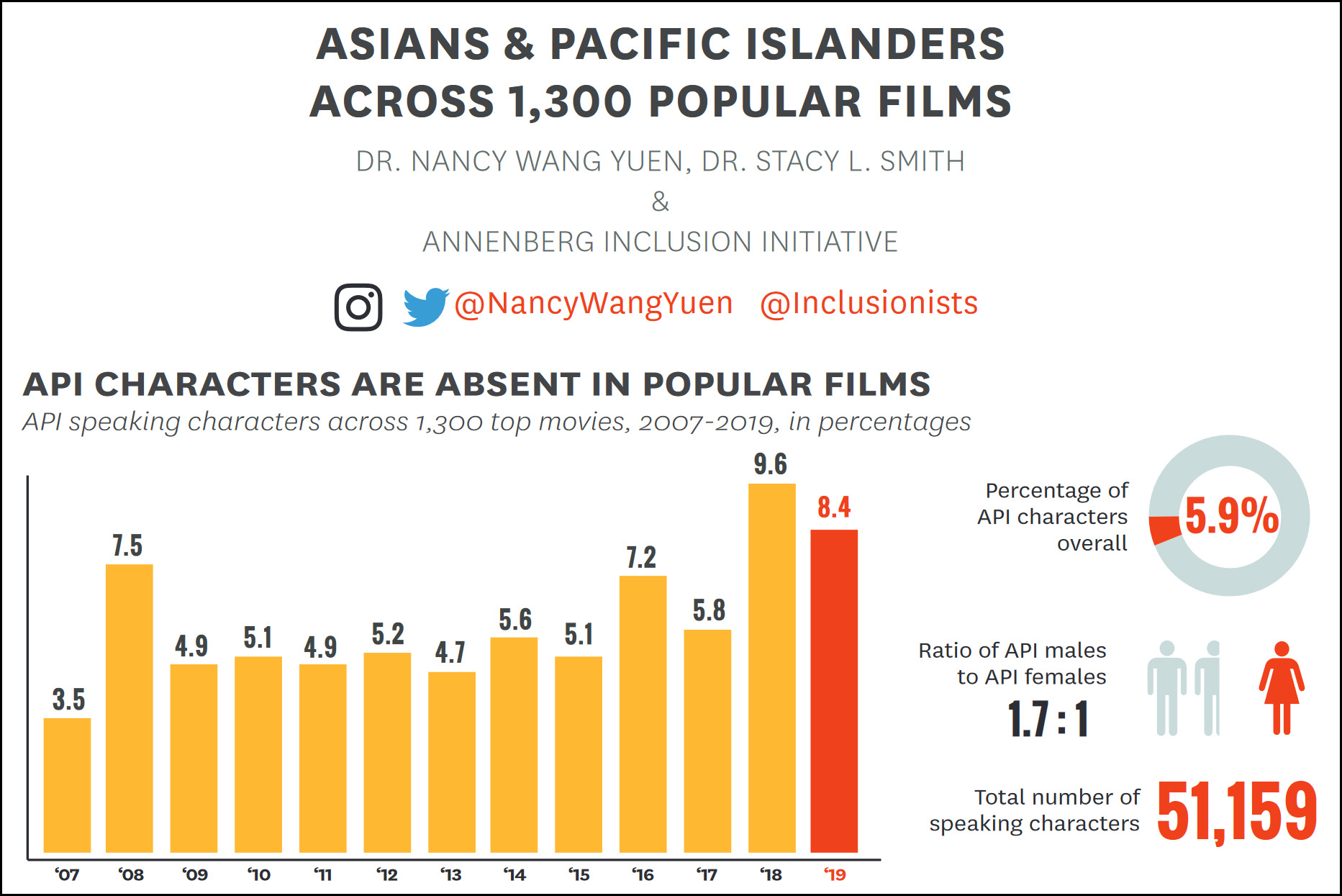
Depending on how you count, the API share of the population is 5-6.5%. Far from being "absent," they're represented at about the level you'd expect. In 2019, they were represented well above their share of the population.
The report is on more solid ground when it looks at behind-the-camera positions, where the API share hovers around 3%. So that's fine. But why insist on pro-forma outrage even where it's not warranted?
Over the weekend I happened to post a chart showing e-commerce revenue as a percentage of all retail sales, but it only went through the end of last year. Today brings us the latest data, which goes through March of this year:
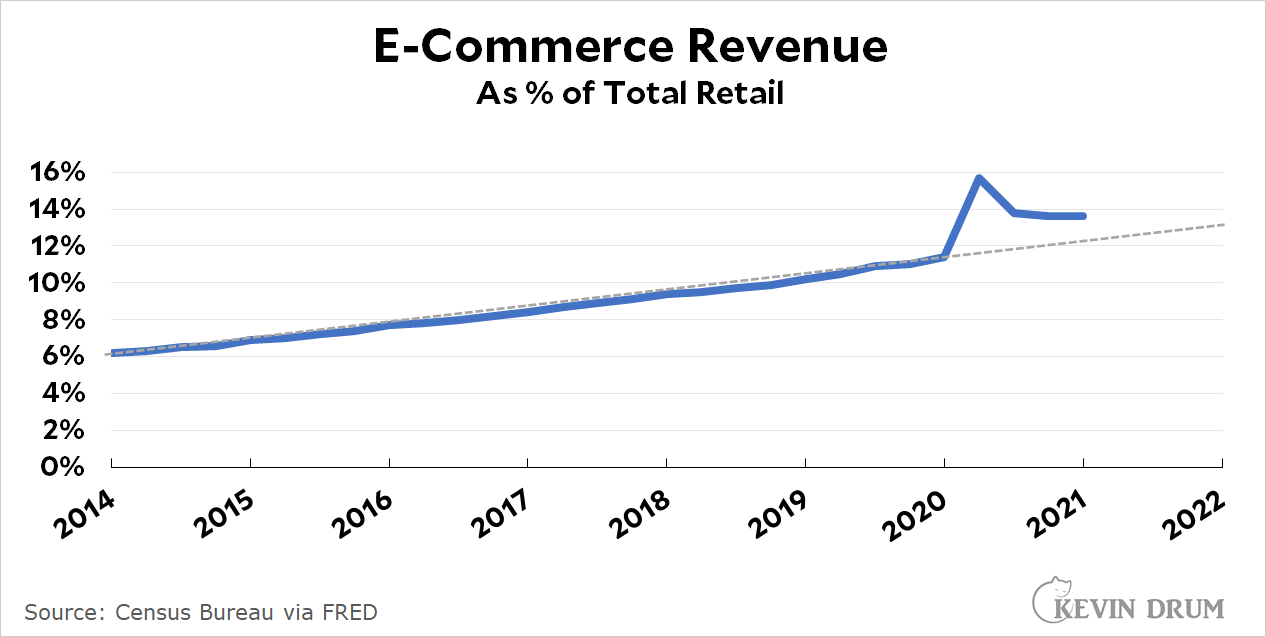
It's continuing to level out, and that's even before the Great Unmasking, which only started in May. This strikes me as evidence that, generally speaking, people want to get back to their old habits, rather than sticking to those learned during the pandemic. Within a few months, people will be using e-commerce at about the same level they would have if the pandemic had never happened.
Now this is what I call looming. This is yet another picture of Saddleback looming over Orange County. For you locals, this one was taken driving east on Segerstrom Avenue in Santa Ana.
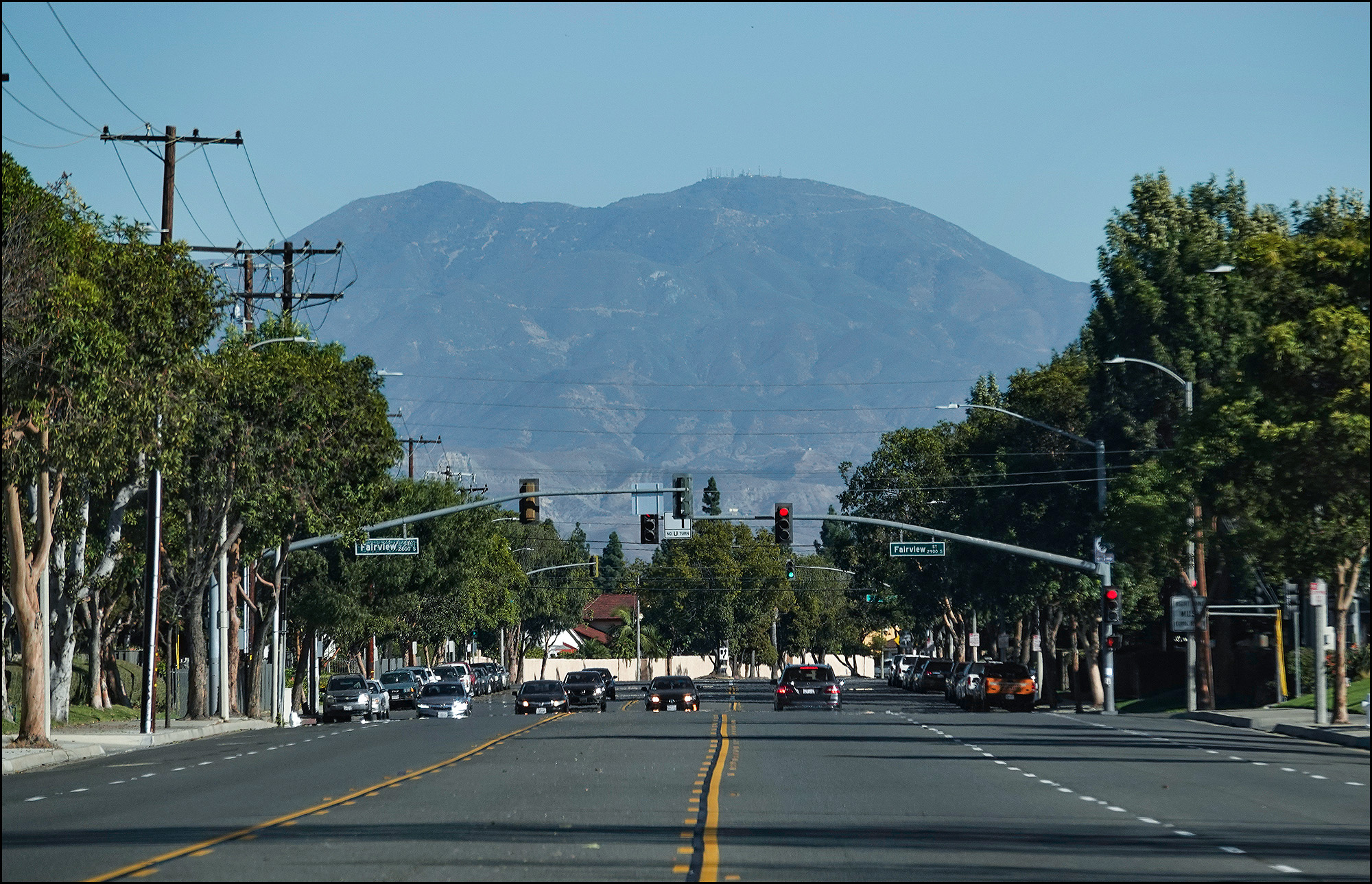
Longtime readers know that I have little sympathy for either side in the never-ending conflict between Israel and the Palestinians. For decades both sides have acted abominably—and still do—and trying to decide which side has acted more abominably no longer has enough moral valence to interest me.
But I will say one thing: these periodic outbreaks of violence always end the same way. They end up with lots of dead people, most of them Palestinians, and with Israel in a stronger position than ever. This is just a fact, and it doesn't depend on which side you happen to support. Fighting Israel, regardless of "who started it," always turns out to be bad for Palestinians. Always.
Michael Burry, one of the investors who became famous for predicting the epic collapse in the housing market in 2008 that was chronicled in the book and movie "The Big Short," has a new favorite stock to bet against: Tesla.
Burry's firm, Scion Asset Management, revealed in a Securities and Exchange Commission filing Monday that it held bearish put options on more than 800,000 Tesla (TSLA) shares, worth about $534 million...No reason was given in the filing for why Burry thinks Tesla's stock is due for a fall.
Oh come on. Maybe it has something to do with this:
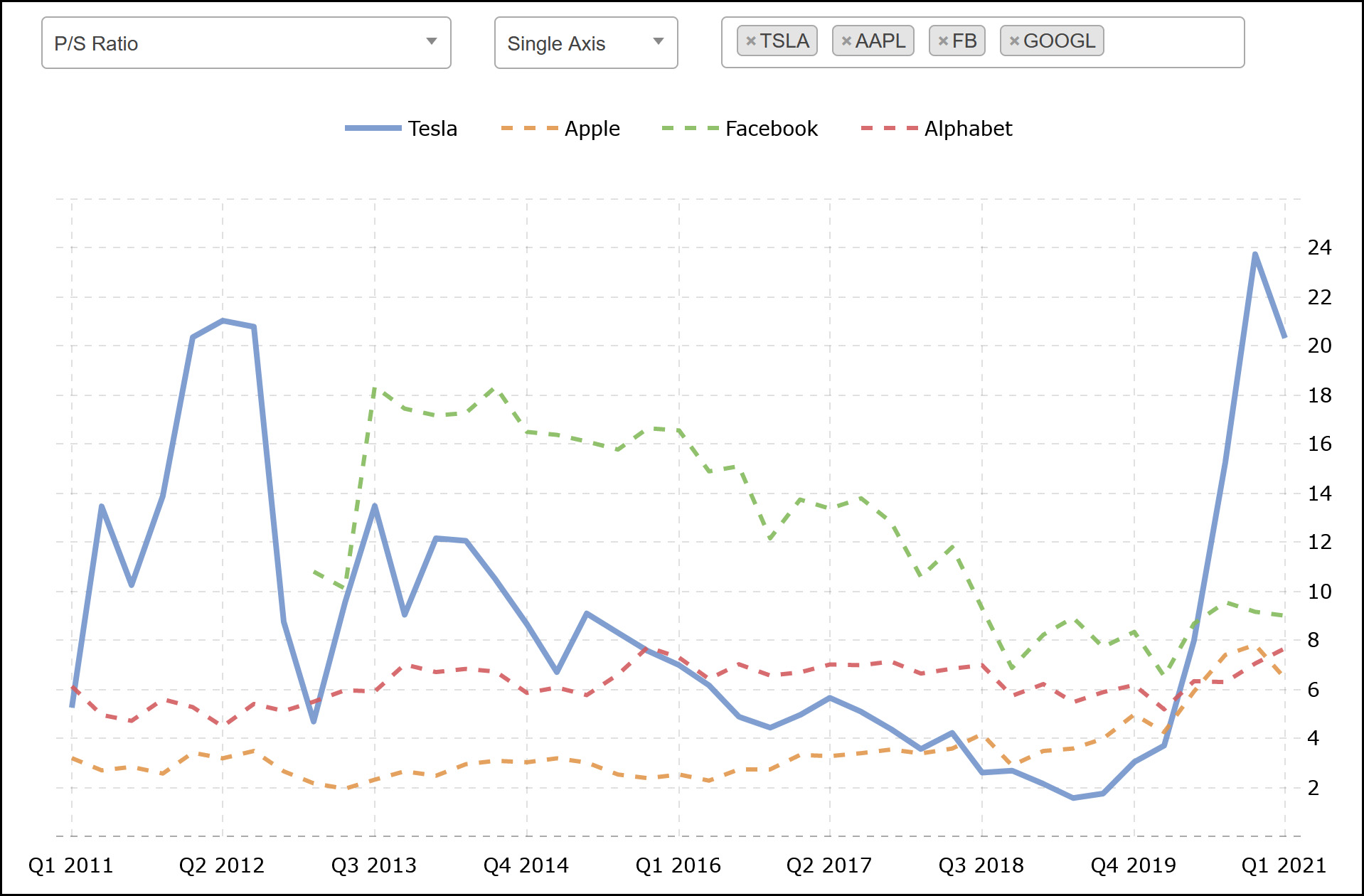
For established companies you'd normally look at PE ratios, but in the case of Tesla it's better to look at the Price-Sales ratio. In the past year it's skyrocketed up to 20, which is 2-3x the level of even the hottest tech stocks and something like 20-30x that of other car companies. This is obviously nuts and isn't driven by fundamentals in any reasonable sense of the word.
So sure, of course you should short Tesla, as long as you have lots of spare cash and nerves of steel, since Tesla stock jumps around a lot depending on Elon Musk's latest tweets. This is hardly a mystery.
Yesterday FiveThirtyEight published a piece about the Republican push to restrict voting. It's a good roundup of all the latest research on voter suppression, but it also included an interesting chart that tracks the Republican Party's overall commitment to democracy as measured by V-Dem, a Swedish think tank. I've taken the liberty of replotting the chart and adding another line for comparison:
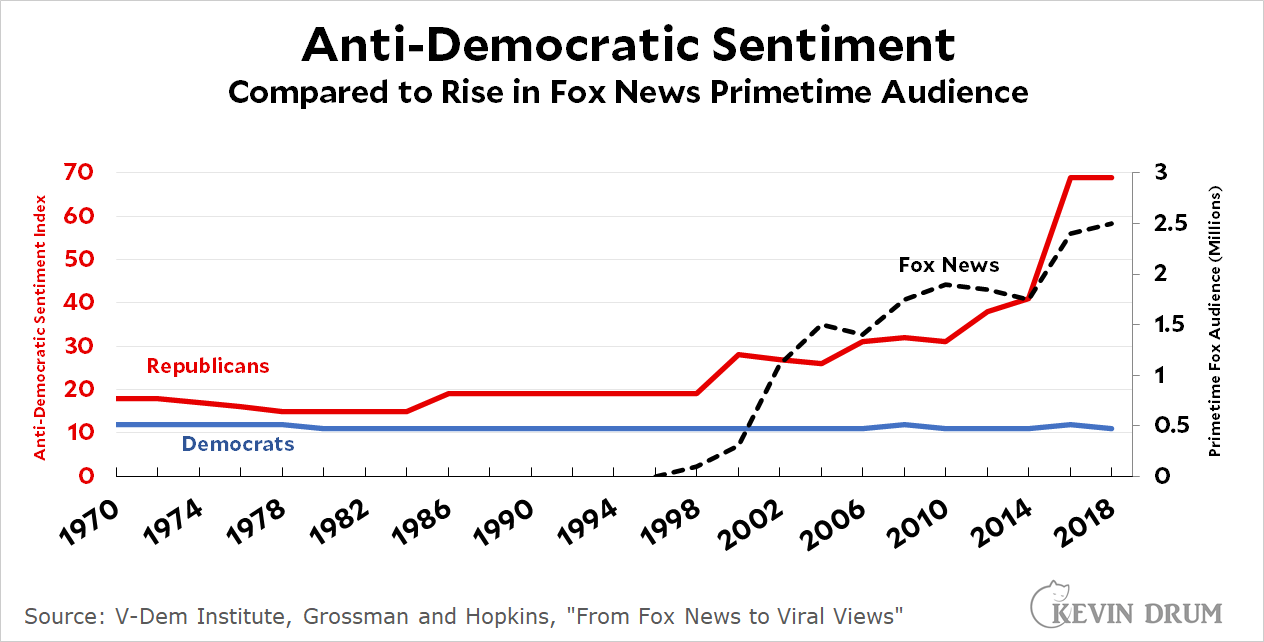
Within the Democratic Party, nothing has happened. Democrats remain about as committed to democracy as always.
The same was true of the Republican Party up through 1998. Then in 2000 anti-democratic sentiment started to rise and continued to rise through 2018. What could account for this?
I've given the game away with the black dashed line, which represents Fox News primetime viewership. In 1996 Fox News started up and for its first few years mostly toed a moderate conservative line. Then, starting around 2000, they adopted a much more right-wing format and their viewership rose as they became available on more cable channels. And guess what? As their viewership expanded, the Republican Party became less and less committed to democratic norms.
Correlation is not causation blah blah blah. By itself, this isn't proof of the baneful effects of Rupert Murdoch's media empire. However, there's plenty of other evidence and this is one more straw on the camel's back. Fox News is responsible more than any other single entity for the destruction of American politics over the past two decades.
Here’s the officially reported coronavirus death toll through May 17. The raw data from Johns Hopkins is here.
